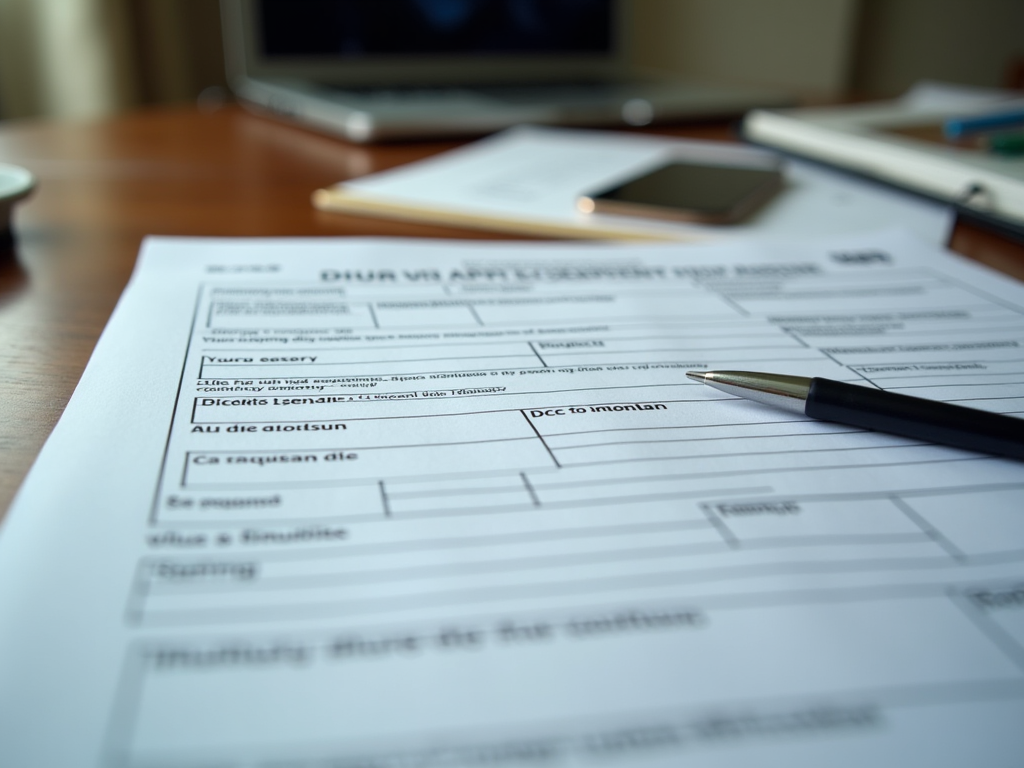Applying for a Dubai residence visa can seem daunting, but with the right guidance, the process becomes straightforward. This article provides a step-by-step approach to help you navigate the application for a residence visa in Dubai, ensuring you understand the requirements and procedures involved. Whether you’re looking to explore job opportunities, reunite with family, or start a new life in this vibrant city, knowing the application process is essential for a smooth transition.
Understanding the Types of Residence Visas in Dubai

Before diving into the application process, it’s crucial to understand the different types of residence visas available in Dubai. The most common types include an employment visa, family sponsorship visa, investor visa, and student visa. Each category is designed for specific circumstances, so identifying which one aligns with your situation is the first step. For instance:
- Employment Visa: Issued to individuals who have secured a job offer from a UAE-based employer.
- Family Sponsorship Visa: Allows UAE residents to sponsor their family members.
- Investor Visa: For those who wish to invest a significant amount in a business in Dubai.
- Student Visa: Available for students enrolled in a UAE educational institution.
Understanding these categories not only guides you in your selection but also prepares you for the specific documentation and application procedures associated with each type.
Gathering Required Documents

Once you’ve determined the type of residence visa you need, the next step is to gather the required documents. Each visa type comes with its own set of requirements, but generally, you can expect to collect the following:
- Application Form: Completed and signed visa application form.
- Passport Copies: Valid passport with at least six months of validity.
- Photographs: Recent passport-sized color photographs.
- Employment Letter or Sponsor Documents: For employment or family visas, proof of employment or sponsorship is essential.
- Medical Test Results: A health certificate obtained from an authorized medical center in the UAE.
- Proof of Accommodation: Evidence of residing in Dubai, such as a rental agreement.
Ensure that all documents are accurate and up to date as discrepancies can lead to delays or application rejections. Furthermore, it’s wise to have your documents translated into Arabic if required, particularly for documents issued outside the UAE.
With all your documents in hand, you can now move on to the submission phase of your residence visa application. Here are the steps you should follow:
- Select Submission Method: You can submit your application online via the General Directorate of Residency and Foreigners Affairs (GDRFA) website or in person at an approved typing center.
- Payment of Fees: Be prepared to pay the application fees, which vary based on the type of visa and your nationality.
- Application Processing: After submission, your application will be processed within a specific timeframe, typically lasting from a few days to a few weeks.
- Track Your Application: Utilize the online system or contact the relevant authorities to track the status of your application.
The submission phase is crucial as it sets the pace for your application’s approval. Make sure to keep track of your submission receipt and any reference numbers provided, as these will be needed for communication with immigration authorities.
Completing Medical Tests and Emirates ID Registration
After your application is approved, the next crucial steps involve completing medical tests and registering for an Emirates ID. Medical testing typically includes a blood test and a chest X-ray to screen for communicable diseases. Here’s what to expect:
- Visit an Authorized Medical Center: Schedule an appointment at a designated center for the medical examination.
- Receive Medical Clearance: Upon successful completion, you will receive a medical fitness certificate.
Simultaneously, you should proceed to register for an Emirates ID, which is mandatory for all residents. The Emirates ID process includes submitting your biometric data and receiving a tracking number for your ID application. This ID is essential not only for identification but also for accessing services across Dubai.
Finalizing Your Residency Visa
Once the medical tests and Emirates ID registration are complete, you will receive your residency visa. This usually involves the following steps:
- Visa Stamping: Your residency visa will be stamped in your passport, permitting you to live, work, and study in Dubai.
- Collect Your Emirates ID: You can collect your Emirates ID either at the center where you registered or have it delivered to your address.
- Understand Your Responsibilities: Familiarize yourself with the rules and obligations associated with being a resident in Dubai, including renewals and residency status changes.
At this stage, you are officially a resident of Dubai. Embrace the opportunity to settle in and adapt to life in this dynamic locale.
Conclusion
The process of applying for a Dubai residence visa may require patience and diligence, but understanding each step makes it manageable. By determining the correct visa type, gathering necessary documentation, submitting your application correctly, completing medical requirements, and finalizing your residency, you will pave your way for a successful transition to living in Dubai. Remember to keep abreast of any changes in immigration policies or requirements and utilize official channels for assistance where needed.
Frequently Asked Questions
1. How long does it take to get a Dubai residence visa?
Generally, the processing time for a Dubai residence visa can vary from a few days to several weeks, depending on the type of visa and the completeness of your application.
2. Is it necessary to have a job offer to apply for a residence visa?
Not necessarily. While a job offer is essential for an employment visa, other options like family sponsorship, investor visas, and student visas do not require a job offer.
3. What medical tests are required for a residence visa?
Standard medical tests for a residence visa include a blood test and a chest X-ray to check for infectious diseases, as mandated by UAE health regulations.
4. Can I apply for a residence visa if I am not in Dubai?
Yes, you can apply for a residence visa from outside Dubai, particularly for family sponsorship or investor visas, although specific processes will need to be followed.
5. How often do I need to renew my Dubai residence visa?
A Dubai residence visa is usually valid for one to three years, after which it must be renewed. It’s important to check the specific validity period on your visa as regulations can change.